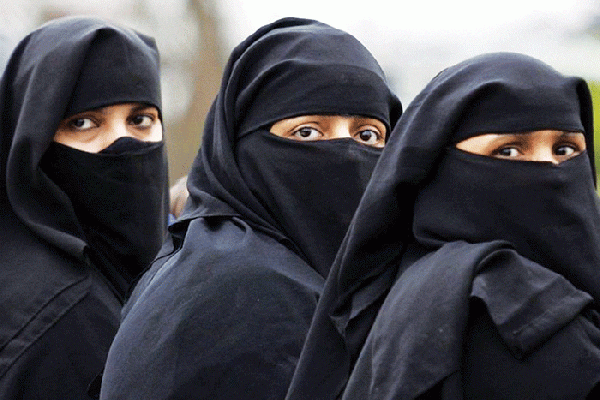
The Niqab has sparked controversy in a number of stories and events, including one about a Muslim woman in Canada who was not allowed to take her oath of citizenship because she wore the Niqab.
In France, it was banned— along with a number of other face covering gear, such as balaclavas, helmets, and masks— in public places where, for security-related reasons, facial identification is needed.
However, the ban in France does not involve transportation in a car or being in a place of worship.
A 2003 story involved a Muslim woman suing Florida for refusing to take her picture in the Niqab. Due to no rulings against a face cover in a driver’s license photo, the case landed in her favor.
A married woman who lives in Saudi Arabia and wears the Niqab shared her view and experiences with The Arab America News, but wished to keep her identityanonymous.
“Wearing the Niqab was my personal choice,” she said. “I believe it is my religious duty and that is why I chose to wear it. Some people in Islam think it is a religious duty, like me; and others think that it is only the hijab that is required, so there are two different opinions.”
Islamic sites online are also split on the religious duty or cultural decision debate regarding the Niqab.
Some sites, including Islamopedia, have contested that some hadiths, quotes by the prophet Mohamad, have made the full covering of the face mandatory. Others claim those hadiths are contradictory to other hadiths, which state a woman must not wear a face cover or gloves while praying or in pilgrimage to Mecca.
In countries such as Azerbaijan, Tunisia and Turkey, women who wear the Niqab often cannot work public jobs and cannot go to public or private schools. It can also be difficult for them to find jobs in private companies.
“Some owners refuse to have women who wear the Niqab work in the company because it can be distracting to the men,” the Saudi woman said. “The hardest thing for me is when I’m out in public with my family and I’m the only one who is wearing the Niqab. Also, it’s hard during the summer when I need to go out and it gets very hot.”
A woman in Egypt told the Arab American News about women in her community— including herself— wearing the Niqab.
“It was my choice to wear it,” she said. “I don’t think it is cultural; and everyone that I know in the community who decided to wear it wore it out of piety and devotion to God.”
Both women told the Arab American News that they have not been personally victimized for wearing the Niqab. However, the Egyptian woman explained how there has been more controversy lately on the topic.
“It was not the same as it was five years ago,” she said. “I know a few friends who were subjects of harsh words from people in the streets or most public places.”
With terrorist organizations like ISIS, which continues to gain International attention from the media, it has been common for Muslims and Arabs to experience some aspects of discrimination.
In the shootings in January at the newspaper “Charlie Hebdo” in Paris; the attack during a “draw Mohamad” contest outside Dallas in May and the July 16 shootings in Chattanooga, the attackers were all labeled as “Muslim terrorists” by most media sources. These attacks have lead to the media spreading fear and negative imagery to their viewers about the religion of Islam and its followers; including oppressing women by every means.
“I think that most people have this image in their minds about the girl who’s wearing the Niqab, so they build on that image and treat them in the same way they see them,” the Egyptian woman said.
Both women have expressed their love for the Niqab, despite the views some people hold.
“I love wearing the Niqab,” the Saudi woman said. “I feel more comfortable, relaxed and satisfied with myself.”
“Not just hijabis, but Niqabis also live their life happily,” the Egyptian woman said. “I do things I like and I have started my own business, take courses and many other things. Just because a woman decided to wear the scarf doesn’t mean that she is isolated from society or the life she lives in. We just want to live a good life without causing harm to people or upsetting God. That doesn’t mean we are all angels, because in the end we are all human and we all make mistakes, just like everyone else.”






Leave a Reply